
The Grand Ole Opry is a regular live country-music radio broadcast originating from Nashville, Tennessee, on WSM, held between two and five nights per week, depending on the time of year. It was founded on November 28, 1925, by George D. Hay as the WSM Barn Dance, taking its current name in 1927. Currently owned and operated by Opry Entertainment, it is the longest-running radio broadcast in U.S. history. Dedicated to honoring country music and its history, the Opry showcases a mix of famous singers and contemporary chart-toppers performing country, bluegrass, Americana, folk, and gospel music as well as comedic performances and skits. It attracts hundreds of thousands of visitors from around the world and millions of radio and internet listeners.

Dragnet is an American media franchise created by actor and producer Jack Webb, following Los Angeles Police Department (LAPD) Detective Joe Friday and his partners as they conduct by-the-book police work and solve crimes in Los Angeles. Originating as a radio drama on NBC in 1949, Dragnet has been adapted into several successful television shows and films, though the franchise's popularity has reduced since Webb's death in 1982. Its name is derived from the police term "dragnet", a system of coordinated measures for apprehending criminals or suspects.
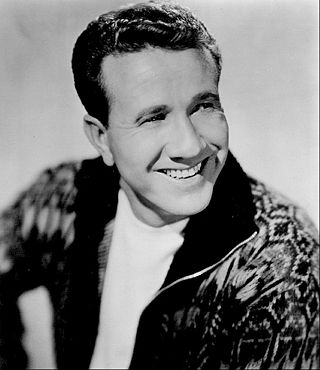
Martin David Robinson, known professionally as Marty Robbins, was an American singer, songwriter, multi-instrumentalist, and NASCAR racing driver. Robbins was one of the most popular and successful country and western singers for most of his nearly four-decade career, which spanned from the late 1940s to the early 1980s. He was also an early outlaw country pioneer.
Polly Adelaide Hendricks Hazelwood, known professionally as Del Wood, was an American pianist.
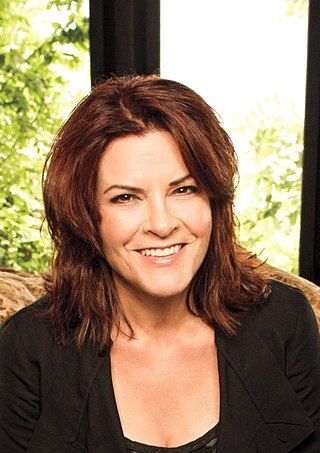
Rosanne Cash is an American singer-songwriter and author. She is the eldest daughter of country musician Johnny Cash and his first wife Vivian Cash.
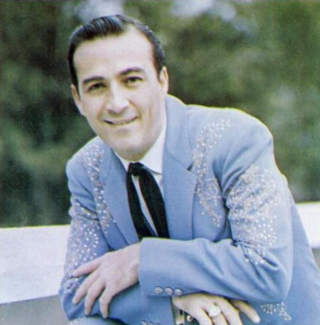
Faron Young was an American country music producer, musician, and songwriter from the early 1950s into the mid-1980s. Hits including "If You Ain't Lovin' " and "Live Fast, Love Hard, Die Young" marked him as a honky-tonk singer in sound and personal style; and his chart-topping singles "Hello Walls" and "It's Four in the Morning" showed his versatility as a vocalist.
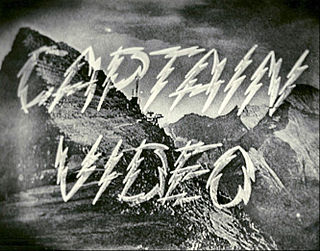
Captain Video and His Video Rangers is an American science fiction television series that aired on the DuMont Television Network and was the first series of its genre on American television.
The Mind's Eye series consists of several art films rendered using computer-generated imagery of varying levels of sophistication, with original music scored note-to-frame. The series was conceived by Steven Churchill of Odyssey Productions in 1989. The initial video was directed, conceptualized, edited and co-produced by Jan Nickman of Miramar Productions and produced by Churchill. The first three products in the series were released on VHS and LaserDisc. The second and third programs in the series were also released on DVD, while the fourth program was released and distributed by Sony Music exclusively on DVD.

Night Editor is a 1946 American film noir directed by Henry Levin and starring William Gargan, Janis Carter and Jeff Donnell. It was based on a popular radio program of the same name. The script for the film was based on a previous radio program episode "Inside Story." A B-movie produced by Columbia Pictures, The movie was to be the first in a series of films featuring stories about the graveyard-shift police beat reporters at a fictional newspaper, the New York Star, but no other Night Editor films were made.

America's Music: The Roots of Country is a 1996 three-part, six episode documentary about the history of American country music directed by Tom Neff and Jerry Aronson and written by Neff and Robert K. Oermann. The film touches on many of the styles of music that make up country music, including: Old-time music, Cajun music, Folk music, Rockabilly, Western music, Western swing, the Bakersfield sound, Honky-tonk and the Nashville sound. Country music artist and actor Kris Kristofferson narrates the three-part series.
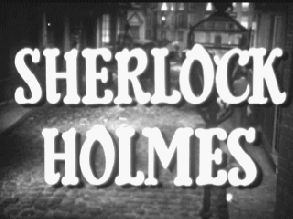
Sherlock Holmes is an American detective television series syndicated in the autumn of 1954, based on the Sherlock Holmes stories of Arthur Conan Doyle. The 39 half-hour mostly original stories were produced by Sheldon Reynolds and filmed in France by Guild Films, starring Ronald Howard as Holmes and H. Marion Crawford as Watson. Archie Duncan appeared in many episodes as Inspector Lestrade. Richard Larke, billed as Kenneth Richards, played Sgt. Wilkins in about fifteen episodes. The series' associate producer, Nicole Milinaire, was one of the first women to attain a senior production role in a television series.
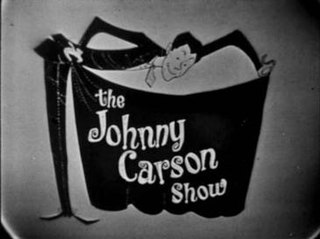
The Johnny Carson Show is a 1955–56 half-hour primetime television variety show starring Johnny Carson.
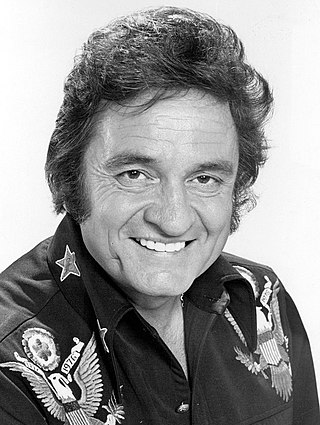
John R. Cash was an American singer-songwriter. Most of Cash's music contains themes of sorrow, moral tribulation, and redemption, especially songs from the later stages of his career. He was known for his deep, calm, bass-baritone voice, the distinctive sound of his backing band, the Tennessee Three, that was characterized by its train-like chugging guitar rhythms, a rebelliousness coupled with an increasingly somber and humble demeanor, and his free prison concerts. Cash wore a trademark all-black stage wardrobe, which earned him the nickname "Man in Black".
Johnny Western is an American country singer-songwriter, musician, actor, and radio show host. He is a member of the Western Music Association Hall of Fame and the Country Music Disc Jockey Hall of Fame.

The Fourth Alarm is a 1926 short silent comedy film directed by Robert F. McGowan. It was the 53rd Our Gang short subject to be released. It was later reworked in Hook and Ladder in 1932.
Quonset Hut Studio was a music recording studio established in 1954 in Nashville, Tennessee by brothers Harold and Owen Bradley as Bradley's Film & Recording Studios and later operated as Columbia Studio B. The Quonset Hut was the first commercial recording studio in what would later become known as Music Row. It is now a recording classroom for Belmont University.
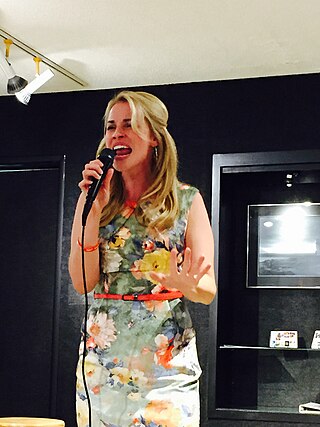
Kasey Lansdale is an American country music singer-songwriter from Nacogdoches, Texas. Lansdale is also known for her work as an author, editor, actress, and producer, as well as host and founder of the East Texas Songwriter's Workshop. Her full-length debut album Restless was released on August 20, 2013, on Blue Siren Records; it was co-produced by Mike Clute and Kasey Lansdale. The Executive Producer is John Carter Cash.

Circle Country, previously known as Circle, is a free ad-supported streaming television (FAST) service owned by Gray Television as part of its PowerNation Studios division. The network's programming consists of country music oriented shows, western films and rural/blue collar themed material, featuring a mix of original and off-network shows sourced from Opry Entertainment Group.

The first season of the American Western television series Bonanza premiered on NBC on September 12, 1959, with the final episode airing April 30, 1960. The series was developed and produced by David Dortort, and season one starred Lorne Greene, Pernell Roberts, Dan Blocker, and Michael Landon. The season consisted of 32 episodes of the series's total 431 hour-long episodes, the entirety of which was produced in color. It aired on Saturdays from 7:30 pm–8:30 pm on NBC and placed at number 45 in the Nielsen ratings.














